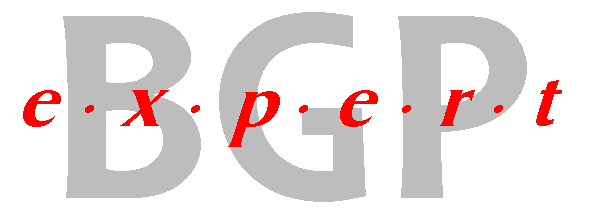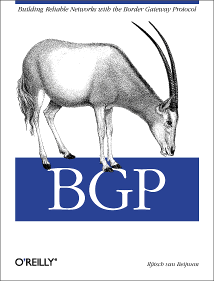
|

|

|
|
Home ·
BGP Expert Test ·
What is BGP? ·
BGP Vendors ·
Links ·
Archives ·
Books ·
My New BGP Book | ||
 (advertisement)
(advertisement)
| ||
|
IPv6 addresses and AS numbers in 2014 (posted 2015-01-09)
After yesterday's final yearly IPv4 address report, I thought that today, I'd look at the other numbers the five Regional Internet Registries give out: IPv6 addresses and autonomous system (AS) numbers. I have pages that show the latest numbers for these based on the most recently imported RIR data: IPv6 and AS numbers. On January first, 2015, the total number of IPv6 addresses given out was 12626804692343330164921678734295040. The number of IPv6 addresses that are currently set aside for regular "global unicast" use is 42535295865117307932921825928971026432, so 0.0296% of the IPv6 address space has been used up so far. (And we can increase the global unicast space by at least a factor six if we need to.) Of course the number of individual IPv6 addresses is rather meaningless, as each Ethernet or Wi-Fi network uses up 18446744073709551616 of those, even if there's only a single IPv6 system connected to that network. A more meaningful number is the number of /32s given out. A /32 is the size of the address block given to small-to-mediumsize ISPs. The equivalent of 159,372.68 /32s had been given out on January first, 17,916.90 of which in 2014. That number varies a bit from year to year, as some large ISPs or government entities happen to get particularly large blocks of addresses. However, the number of IPv6 address blocks has been growing fairly steadily from 2510 in 2010 to 4536 in 2014, with a total of 22,118 given out on January first. (For IPv4 the total is 145,917, which is 9039 higher than the total on January first, 2014.) Split out per RIR region:
2014 Totals
RIR Blocks In /32s Blocks In /32s
AfriNIC 62 51.00 449 4617.00
APNIC 528 2663.00 3730 46210.15
ARIN 512 5232.68 4193 41465.94
LACNIC 1208 1363.20 3370 7989.54
RIPENCC 2226 8607.00 10376 59090.03
As every BGP expert knows, in order to advertise those IPv4 and IPv6 address blocks into the global routing system, you need an autonomous system number. Originally, those were 16 bits, allowing for 64512 usable AS numbers. 58,800 of those had been given out by January first, 2015, with the yearly rate being between 3500 and 4000 in recent years and 3056 in 2014. However, BGP has been modified to work with 32-bit AS numbers. 9475 of those have been given out; 2052 in 2011, 1706 in 2012, 1577 in 2013 and 2988 in 2014. So the total number of AS numbers given out went pas 6000 for the first time last year. The mix is rather different at the different RIRs (ASNs given out in 2014):
RIR 16+32 32 % 32 AfriNIC 141 114 81% APNIC 1299 722 56% ARIN 1587 421 27% LACNIC 964 570 59% RIPENCC 2053 1161 57% Unlike with the transition from IPv4 to IPv6, where you need to adopt IPv6 in order to talk to other IPv6 users, existing 16-bit AS numbers can be used to talk to routers that have a 32-bit AS number, making for a much easier transition.
|
